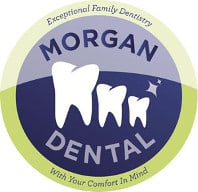What are dental sealants?
Sealants are resin coatings placed on the chewing surfaces and deep grooves of the back teeth for cavity prevention. Without a sealant, the small grooves and pits very often develop cavities as toothbrushes are ineffective in removing all of the food and germs that get trapped there.
How do cavities form?
A cavity is the result of bacteria chewing a hole in the tooth over time. This bacteria is always present in the mouth but uses the sugar we eat to form an acid that damages our teeth. We call this process decay.
Who should receive sealants?
It is recommended that children should get sealants on their permanent molars as soon as a tooth is fully erupted or all of the grooves and pits are free of gum tissue. Children get the first permanent molars between the ages of 5 and 7 (nicknamed 6 year molars). The second permanent molars fully erupt when a child is between 11 and 14 years old (nicknamed 12 year molars).
Premolars (or bicuspids) are the set of 2 teeth preceding the adult molars in all 4 quadrants of the mouth. They come in between 10 and 12 years old often with deep grooves that are prone to decay.
How long do sealants last?
Sealants can last up to 5 years or more but need to be evaluated at each regular dental check-up to make sure they are not chipped or worn away. Periodic repair or replacement when needed will help to ensure that sealants will continue to prevent decay for years to come.
Will a sealant prevent all cavities on my back teeth?
No. A sealant is effective at preventing cavities in pits and grooves of molars as well as premolars. However the sides of the teeth require flossing as well as effective brushing to prevent decay.
Are there foods to avoid after a sealant is placed?
Once sealants are light cured, normal eating and drinking can resume. Hard candies and chewing ice should be avoided to prevent fractures of dental sealants. Sticky candies can pull out sealants and should also be avoided.
Will my dental benefit plan cover sealants?
Yes. Dental sealants are proven to be effective at preventing tooth decay on the most cavity prone teeth, molars and premolars. Therefore, dental sealants are a standard and common benefit on almost all dental plans up to the age of 14 usually with no patient co-pay. Many plans pay for sealants on teeth that are free of cavities and fillings regardless of patient age.
